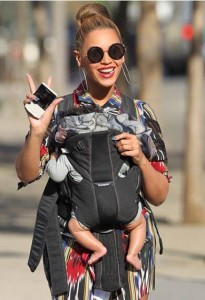beyonce the flawless feminist

Image: Wikimedia Commons
Beyoncé. Singer, mother and self-proclaimed feminist. Let’s face it, we adore her. But like every woman in the entertainment business who names themselves a feminist, there are times when the pointy bra and raunchy lyrics don’t quite live up to the ideology. But do we blame the industry for this, or the individual? The vast majority of performing artists are told what to wear, what to say and how to act in order to get ahead, but Beyoncé is not one of them. Sure, there was a time when she undoubtedly had to go through this charade, but those days are long gone. Beyoncé could announce tomorrow that she will only perform from now on in a Godzilla costume, and people would just roll with it. But, as they say, with great power comes great responsibility, and when a global superstar labels herself a feminist, that responsibility is often difficult to uphold.
The global brand of Beyoncé is all about empowering us to be strong, independent women, who recognise our inner beauty and don’t need men to succeed in life. But being a global superstar in Western patriarchal culture also seems to involve wearing skimpy clothing, dancing suggestively and doing other things that serve to blur the line between feminism and anti-or-postfeminism. Of course, this argument isn’t a new one, and Beyoncé’s reply is always the same – female empowerment. Women have the right to be in control of their bodies, and to be sexual.
But by doing this, are you in control of your own sexuality, or using the most base, unoriginal way to gain fame and fortune?
A recent example of Beyoncé failing to live up to the symbol of feminism she has become can be seen in the recent Time Magazine debacle. Beyoncé was featured in the Time 100 Most Influential People List, as well as being chosen for the cover photo, for which she posed in her underwear. Beyoncé recognised the significance of this honor, ‘because it’s not about fashion or beauty or music; it’s about the influence [I’ve] had on culture.’ Sorry Bey, but donning your unmentionables doesn’t really serve to flaunt your cultural achievements…
Time Magazine also released alternate covers featuring other men and women from the 100 Most Influential People List, all of whom were fully clothed, and striking various powerful, intelligent poses, whereas Beyoncé looks somewhat nervous and intimidated – hardly the symbol of power and influence she is being celebrated as. Accompanying this image is the underlying message that the most influential aspect of you as a woman is your body. There were 40 other inspiring, incredible women on the list, yet Time chooses an entertainer for the cover, then puts her in her underwear.
During a panel discussion titled Are You Still a Slave? at New York’s New School on 7 May 2014, which included bell hooks, trans advocate Janet Mock, filmmaker Shola Lynch and author Marci Blackman, the discussion unsurprisingly turned to Beyoncé, and her role in the publication of this particular image. hooks argues that Beyoncé probably had little control over that photo and what she would be wearing, but with Beyoncé’s infamously strict control over her public image, this is very unlikely. Either she chose this image, with all the negative, sexist connotations it bears, or she didn’t, and is not in control of her own management. Either way Beyoncé comes across as a puppet of the media, and as not the powerful businesswoman she claims to be.
‘I see a part of Beyoncé that is, in fact, anti-feminist—that is, a terrorist—especially in terms of the impact on young girls,’ claimed hooks.
There are plenty of other examples of Beyoncé’s hypocrisy, such as the irritation fans felt after Beyoncé posted a photo-shopped image of herself with a thigh gap, directly uprooting the message behind her song Pretty Hurts and the accompanying music video.
Everything Beyoncé does seems to come back to feminism, whether it’s the clothes she wears or standing meekly by whilst her sister violently attacks her husband. This recent incident in the spotlight is nothing more than a long line of conjecture, leading from Solange attacking Jay Z for his apparent infidelity, to Beyoncé’s inaction not being in keeping with the actions of a strong, independent woman. For all we know, Solange and Jay Z could have been rehearsing a play, or pranking Jay’s new bodyguard. The point is, we don’t know what happened, and judging from the family’s less than enlightening public statement, we likely never will.
Beyoncé may be the type of woman to let her sister kick her husband’s ass or dance on stage in her underwear, but she is also the type of woman who inspires and empowers millions of women to be stronger, better versions of themselves. She may not be the perfect feminist, but is there ever a perfect anything? Did you ever hear of the perfect mother? The perfect politician? The perfect Christian?
Whenever someone in the public sphere labels themselves as one thing, there will always be people waiting to tear that label down again. I am not claiming that Beyoncé is as flawless as she claims to be, as she has certainly made poor publicity choices, and hasn’t always portrayed herself in the most pro-feminist way. But, to me, Beyoncé is still an inspiration, and is more of a role model and an idol than many other women in the media who toy with the idea of feminism when it suits them.

